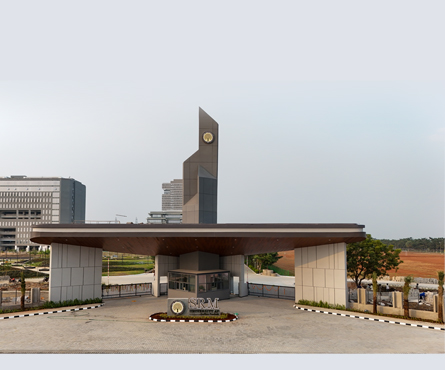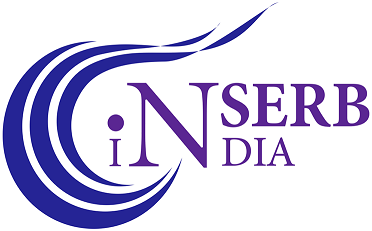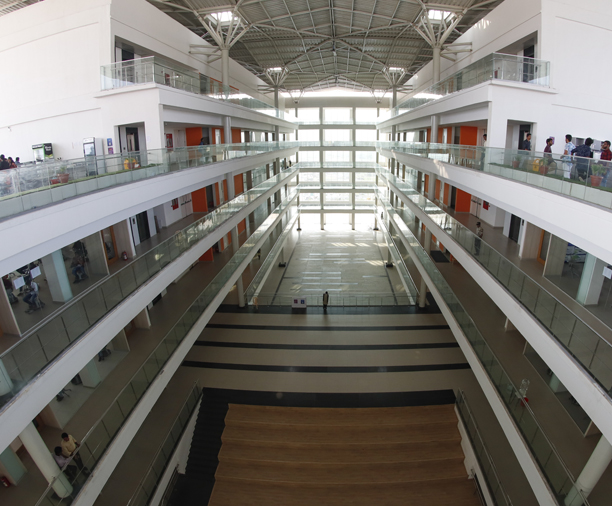DST-ANRF-Sponsored 5-Day Workshop on
Revolutionising Healthcare with AI: Computational Biology and Computer Vision in Medical Diagnostics
April 28 - May 02, 2025

About SRM University-AP
SRM University-AP, a pioneering institution in higher education, is dedicated to fostering innovation, research, and academic excellence. Established in 2017 with a vision to be a globally connected and industry-driven university, SRM AP blends interdisciplinary learning with world-class faculty, state-of-the-art infrastructure, and a dynamic curriculum.
Located in the heart of Andhra Pradesh, the university is committed to nurturing future leaders, entrepreneurs, and researchers through cutting-edge programs in engineering, sciences, management, and humanities. With a strong focus on experiential learning and industry collaboration, SRM AP provides a transformative educational experience that prepares faculty and students to excel in a rapidly evolving world.
Important Dates
About the Department of CSE
The Department of Computer Science and Engineering (CSE) at SRM University-AP is at the forefront of cutting-edge research, technology-driven education, and industry collaboration. With a curriculum designed to meet global standards, the department nurtures future innovators, entrepreneurs, and leaders in computing and artificial intelligence.
Equipped with state-of-the-art laboratories, world-class faculty, and interdisciplinary research centers, the department fosters a culture of experiential learning, innovation, and industry integration. SRM AP’s CSE graduates and faculty actively engage in advanced research areas such as Artificial Intelligence (AI), Data Science, Cybersecurity, Internet of Things (IoT), Blockchain, and Cloud Computing.
To create technology innovators and leaders who can shape the future of society through technical, research, and entrepreneurial skills with a strong emphasis on interdisciplinary learning and collaborations.
Announcements
Artificial Intelligence (AI) is rapidly transforming healthcare, offering groundbreaking advancements in medical diagnostics through computational biology and computer vision. The workshop is a 5-day program conducted in offline mode with live lectures, and hands-on and interactive sessions. The technical sessions will include presentations from experts in academia on the latest advancements in the themes mentioned. The hands-on training will lay a pathway to get real-time knowledge about the recent trends of computer vision and computational biology in healthcare applications.
Outcome of the Workshop
By the end of the program, participants will have a comprehensive understanding of the role of computer vision and computational biology in transforming healthcare and the skills to drive innovation in academia and beyond.
Objectives of the Workshop
The objective of the Workshop is to empower faculty members with cutting-edge knowledge and practical skills in the rapidly evolving fields of computer vision and computational biology to enhance the accuracy, efficiency, and accessibility of medical diagnostics. The program aims to:




